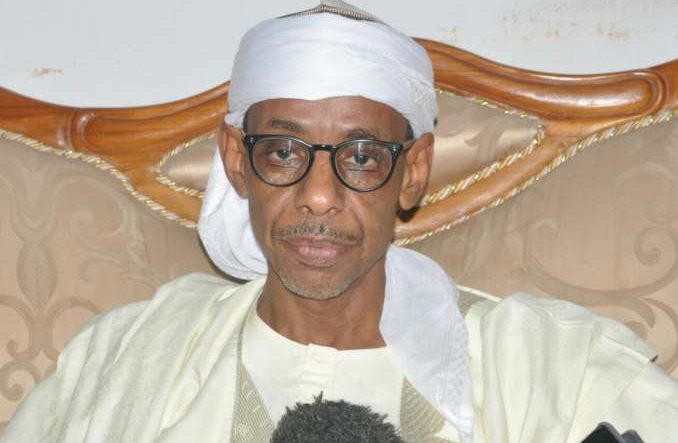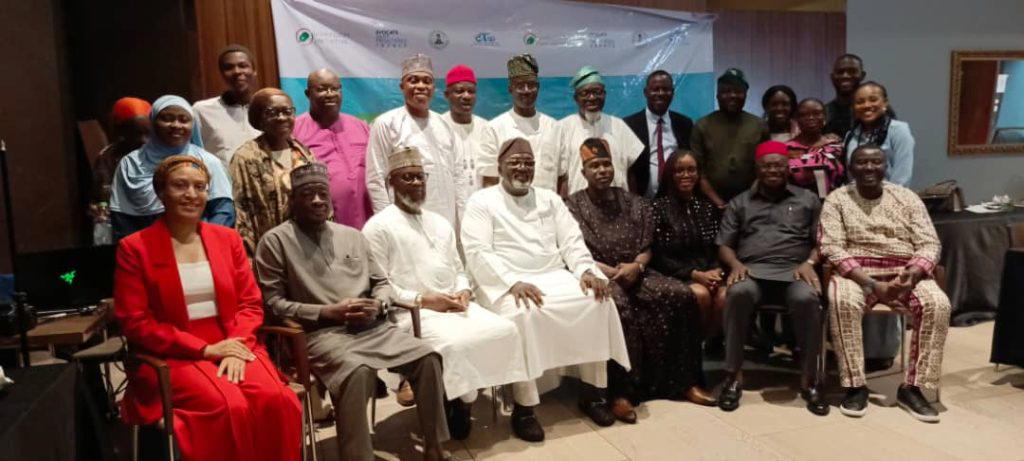
A time in history, by Hakeem Baba-Ahmed,
“Fear no forest because it is dense”— African proverb
It is difficult to recall a time when we worried as much over our circumstances as we do today. Our first seven or so decades until independence were spent as a colony of the British. We were cobbled together basically as a commercial entity which promised and delivered a lot to the British. The elements of our composition and peculiarities as a colony challenged the best of Britain’s colonial administrators when they dealt with our decolonized status.
We were one of the biggest, most populous, most diverse and potentially the wealthiest of all African colonies. In the last two decades of our colonial status, we began to take shape as a potentially free country defined by diversity, compromises and a great enthusiasm to achieve greatness as an independent African country.
A few years outside direct colonization, we stumbled. It is futile projecting Nigeria’s democratic trajectory because the ill-fated hijack of its affairs by the military for over three decades leaves very limited relevant material for this purpose. The military that ended a fragile start to nation-building triggered and led the country through a 30-month civil war whose ghosts still haunt us. Nigeria won the civil war only because all of Nigeria provided a solid front against Igbo secession.
The military then ruled over a nation coming into massive resources and leaking huge quantities of accountability. Control of state resources created massive corruption and generated the emergence of a new elite which made that control its sole objective. Competition for power and state resources in the context of an increasingly shrinking space created constant political instability. After the military ran itself out of maneuvers, it gave way to a democratic system that was dwarfed by fully-grown corruption and a reckless political elite. A nation which could have developed its economy with its resources, solid values, an enterprising and hardworking population and a visionary leadership began to falter. Its poor were increasingly alienated politically and pauperized economically. Its leaders quarreled while stealing the commonwealth. A military that once stood up to apartheid, at imperialism in parts of Africa, to rebels who tore our neighbours apart and upheld the dignity of the black race shrank in confidence and competence.
Internal threats to our collective security began to grow from incidents to residents in a country that increasingly lost the quality of its leadership and the values of a democratic system which gave it cover. Our country bled from humongous official corruption; parasitic private sector and politicians who got to power by making citizens weaker and poorer; collapse of strategic and sensitive institutions and value systems and politics which created enemies out of us. A religious challenge to state authority in Borno State that could have been put down in a week and subsequently, permanently resolved grew into a powerful, terrifying monster owing to incompetence and greed of our leaders. Boko Haram insurgency revealed the tenuous hold of an aging and crippled Northern ruling class, waning powers of the Islamic clergy and the very poor quality of secular leadership now at the helm in the North.It also revealed the stresses and weaknesses which were part of the North’s inter-communal fabric and plural faiths and ethnicity of its population.
Other threats read the lesson: the Nigerian state can be challenged and its citizens badly molested because its leaders and its instruments of defence and security have lost their capacities to function. A great military was weakening under poor political leadership and corruption. We changed leaders and made our problems worse.The South-East was taken over by a vicious force which devoured its potential beneficiaries. The Nigerian state was challenged in the region and serially found wanting. The elite from the region developed a split personality. It could not take on secessionist sentiments, and could not give up its place among the ruling class of Nigeria. Igbo leaders walked on both sides of the street, and complained bitterly over neglect from the rest of Nigeria which thought it lacked a solid base.
Organized violence in the South-South threatened to destroy oil and gas assets. The State submitted to its demands and enabled organized violence to grow into the most effective national bargaining tool.
Every once in a while our basically plural nature was pushed to set us up to kill hundreds or thousands of each other in the names of our God, our tongues or our farmlands and cattle. The State paused and then moved on. Victims were punished, offenders shielded or rewarded. Justice became a political commodity. We learnt the hard way that the Nigerian state lacked the will and the capacity to do justice and punish wrongs. Our law and order institutions collapsed. Our judiciary acquired such an odious reputation, citizens were more content to live with injustice. Foreigners poured into our country with their weapons. Kidnapping became a thriving industry involving all shades and types of Nigerians and foreigners. Herders became armed killers. Peasants defined enemies and visited their justice on them. No one is innocent or safe in our country. Silence is complicity. Fighting back puts you on the wrong side of a law with many sides. Huge spaces have been lost to killers, including millions of citizens who submitted to them because the State cannot protect them. Our young grow up with death, crime,abuse and a pronounced disdain for a country that had invested nothing in them. Millions of some of our best and brightest left to develop other lands, and now they form the vanguard of the efforts to destroy the country.
Then President Tinubu stepped in, his eyes on reforming the economy in the hope that citizens will notice and applaud it as good governance. They have not. He inherited a bad situation and made it a lot worse. During his call, killings spiked. US President Trump threatens to punish a ‘disgraced’ Nigeria that has been involved in genocide against Christians. An almighty quarrel has broken out between Christians and Muslims, between those who insist they have been victims, and those who worry they will be more victimized. Fear is stalking the land following a dramatic escalation in criminal activities since Trump’s threat. There is a big argument over whether Trump’s threats are a cause or a consequence of schools closing, bandits raising their game terrorizing communities and the Tinubu administration and all our security assets are being swamped.
The buck stops at President Tinubu’s desk, and so far Nigerians have looked up to him for assurances and confidence in vain. His meek attempts to engage the US have made things worse. Trump does not respect us, and we are not standing up to him. Our quarrels are becoming more shrill. We are afraid. We need our leader, Tinubu, to step up and calm nerves. To assure us that US will not push our country over the precipice. Tinubu asked us to trust him. Now we ask him to LEAD us.
The post A time in history, by Hakeem Baba-Ahmed appeared first on Vanguard News.
,
“Fear no forest because it is dense”— African proverb It is difficult to recall a time when we worried as much over our circumstances as we do today. Our first seven or so decades until independence were spent as a colony of the British. We were cobbled together basically as a commercial entity which promised and […]
The post A time in history, by Hakeem Baba-Ahmed appeared first on Vanguard News.
, , Emmanuel Okogba, {authorlink},, , Vanguard News, November 25, 2025, 12:43 am










